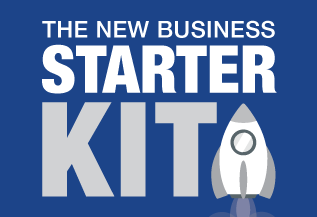How Australian businesses are budgeting and forecasting into FY23
Does your business have new financial year resolutions?
Develop a robust strategy for challenging conditions.
Strategic budgeting and forecasting will be instrumental to financial sustainability for businesses as we head into FY23.
Developing a robust budget that sets the stage for financial success requires expert support across forecasting revenue, managing expenses, and identifying key financial goals.
Why make the time for budgeting and forecasting
Research from the ABS shows that nearly 60% of small businesses cited inadequate cash flow management as a major reason for failure. By developing a well-structured budget and accurately forecasting revenues and expenses, businesses can better anticipate cash flow fluctuations and plan ahead to reduce risks. The data that’s most useful to you will depend on your business.
For example, an Australian retail store planning for the new financial year might analyse historical sales data, market trends, and consumer behaviour as part of forecasting store revenue growth.
Bring a local perspective to forecasting
Your accountant brings the advantage of a broader perspective across the business landscape that considers specific local context.
For example, for an Australian tourism company aiming to forecast revenue for the new financial year you may focus on international travel restrictions, domestic travel trends, and the impact of major events or festivals on tourist arrivals. The more relevant data you have, the more accurate your revenue projections as part of the budgeting process.
Managing expenses is critical to budgeting
An accountant can analyse financial statements, identify cost-saving opportunities, and provide insights on optimising resource allocation.
For example, for an Australian manufacturing company looking to reduce expenses, your accountant may conduct a thorough review of the company's operational costs, analysing areas such as raw material procurement, energy consumption, and labour expenses. By benchmarking against industry standards and utilising cost control strategies, the accountant can help the company develop a competitive market strategy with a budget that minimises expenses without compromising quality or productivity.
3 steps to identify and optimise recurring costs
A crucial aspect of business budgeting is effectively managing recurring costs. These expenses can often accumulate over time and have a significant impact on the overall financial health of a company. Here’s 3 steps you can take to get recurring costs under control.
- Audit and review – The first step in managing recurring cost, work with your accountant to analyse financial statements, invoices, and contracts to identify areas to reduce or eliminate costs. Scrutinise your ongoing subscriptions, service contracts, and supplier agreements for anything that doesn;t align with your business needs.
- Negotiate with suppliers – Negotiating with suppliers to secure favourable terms and pricing can help optimise your purchasing agreements and reduce recurring costs.
- Automation and technology – streamline processes, improve efficiency, and reduce recurring costs. Ask your accountant about cost-effective software solutions, cloud-based platforms, and automation tools to optimise operations.
Gather your support team
You don’t need to approach your business budgeting and forecasting alone. Work with your expert accountant to conduct a comprehensive audit, negotiate favourable terms with suppliers, and leverage automation and technology to optimise recurring expenses.
Partner with your accountant to identify cost-saving opportunities, drive sustainable growth, and maximise profitability in the upcoming financial year.














